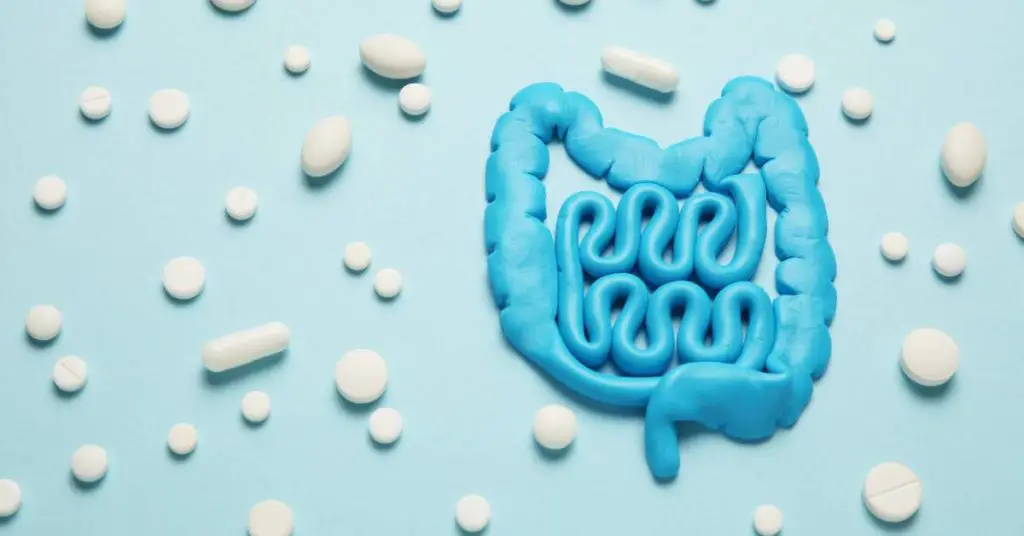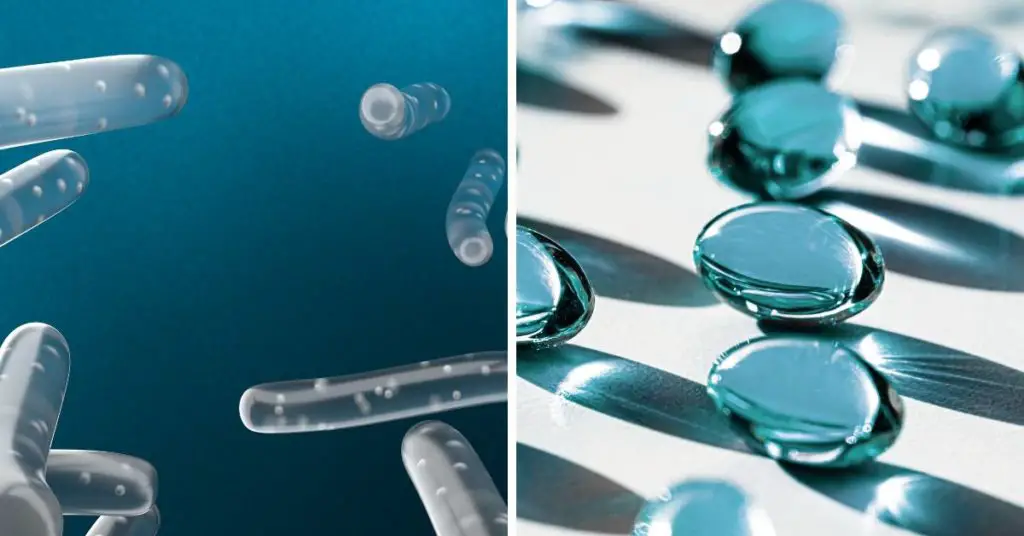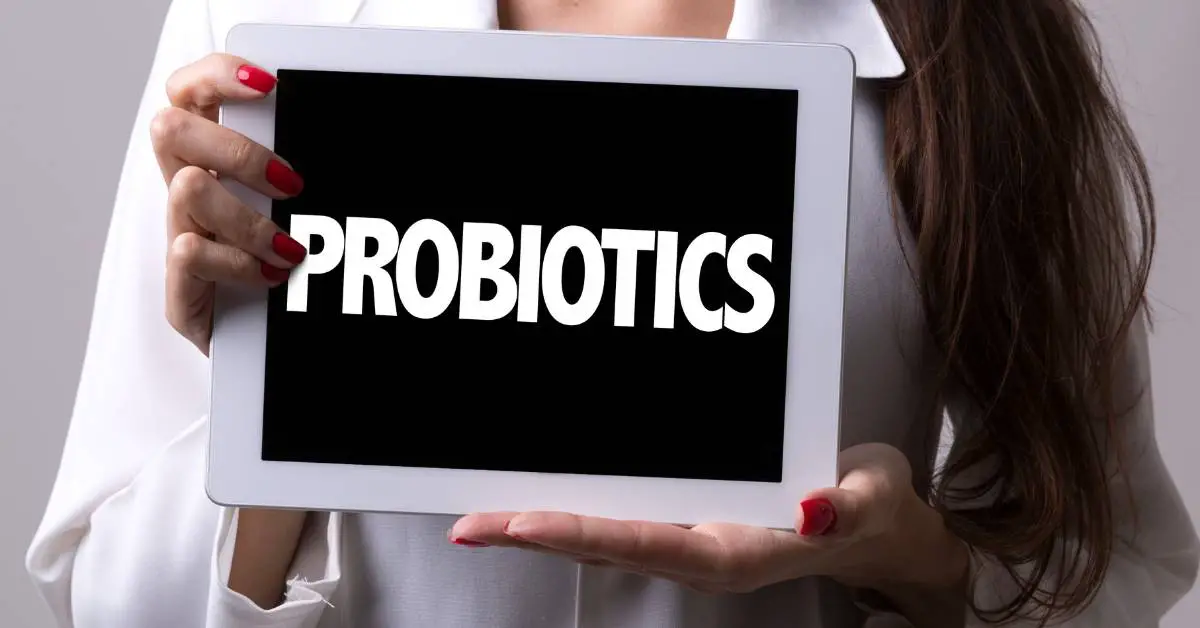Are probiotics high in histamine? Probiotics have gained popularity in recent years to improve gut health and boost the immune system. They’re quite the buzzword these days, thanks to the growing knowledge that the health of your digestive tract also affects your immune system.
Probiotics are live microorganisms (mostly bacteria), found in fermented foods and supplements, that promote the growth of beneficial bacteria in the gut and improve digestion.(4) But probiotic bacteria also produce histamine.
Histamine is a natural compound that plays a role in the body’s immune response. But when histamine levels rise too high, it can cause a range of symptoms, including headaches, hives, and digestive issues. (7)
You’re probably familiar with the symptoms if you have histamine intolerance. That’s why you scrutinize the foods you eat and the supplements you take.
Despite the apparent benefits of probiotics for some, you might wonder whether probiotics are high in histamine and whether they’re safe to take if you have histamine intolerance. The answer is yes and no.
While probiotics themselves do not contain histamine, the fermentation process used to create probiotic-rich foods and supplements can cause histamine levels to rise.
And that’s where it becomes tricky, as a rise in histamine can trigger histamine intolerance symptoms.

Food Sources of Probiotics Are High Histamine
Beyond supplements, you can get probiotics naturally from food sources. Fermented foods like sauerkraut, kimchi, offer gut-friendly “good bacteria” in dietary form. These foods are made by allowing beneficial bacteria to grow and ferment the food, creating a tangy flavor and a range of health-promoting compounds.
When you eat fermented foods like sauerkraut, kimchi, and yogurt, you introduce good bacteria into your digestive tract, and they become part of your digestive landscape. That’s a benefit from a microbiome perspective for people who don’t have histamine intolerance, but not always beneficial if you have histamine intolerance.
If you have histamine intolerance, you should avoid eating fermented foods, as they contain a wide range of bacteria, some of which are strong histamine producers.
But what about probiotic supplements? Some probiotic supplements may contain histamine, as some strains of probiotics, particularly those used in supplements, grow on histamine-rich media. This means the probiotics themselves do not contain histamine, but they may absorb some from the media they grow on.
The fact that some probiotic supplements may contain histamine makes it difficult to get the benefits that probiotics offer for the gut microbiome without worsening histamine intolerance symptoms.

Can Some Probiotics Reduce Histamine?
Fortunately, not all probiotics are created equal when it comes to histamine content. Lactobacillus paracasei CASEI 431® is a strain that doesn’t produce histamine. There’s also some evidence that Lactobacillus rhamnosus and Bifidobacterium infantis may help fight inflammation and histamine in the body.
To avoid triggering histamine intolerance symptoms, you need to take the right strains and that can be tricky, as some can raise your histamine level and trigger symptoms.
One study (1) found that a mixture of Bifidobacterium longum and Bifidobacterium infantis reduced allergy-like symptoms and affected histamine receptors and histamine signaling in a way that would be beneficial for reducing histamine and allergy symptoms.
There are probiotic supplements available that are specifically designed for people with histamine intolerance. These supplements are formulated with strains of probiotics that are low in histamine and lack the gene they need to produce histamine.
Some also block histamine receptors, so that histamine is less able to exert its negative effects and cause symptoms. These probiotic supplements are also free from other common allergens, such as gluten and dairy, which can exacerbate histamine intolerance symptoms. However, it’s important to verify this before buying one.
An example of one such probiotic is called Lac-B. Lac-B is not high in histamine, but it may also reduce histamine levels and histamine intolerance symptoms by its effects on histamine signaling. A study found that Lac-B suppresses the expression of some genes involved in histamine signaling and its action on histamine receptors. (2, 3)
Should You Take a Probiotic Supplement with Histamine Intolerance?
So, should you avoid probiotics if you have histamine intolerance? Not necessarily. While some probiotics may be high in histamine, there are also low-histamine options available.
Taking a carefully chosen probiotic that contains no histamine-producing bacteria and lack the gene to make histamine or is formulated with histamine blocking probiotic strains could be beneficial. Due to their anti-inflammatory benefits, they can reduce inflammation that worsens histamine intolerance.
Plus, they can help repair the gut lining, so it’s less permeable. (5,6) Some probiotics seem to help people who suffer from allergies too.
If you choose to take a probiotic, here are some guidelines for doing so safely:
Look for a probiotic with low histamine-producing strains: Choose probiotic supplements that contain the low-histamine strains listed above.
- Check the expiration date: Probiotics are live bacteria that can degrade over time, so it’s important to check the expiration date on the package to ensure that the bacteria are still active.
- Look for a probiotic supplement that lacks the genes necessary to produce histamine.
- Choose a reputable brand: Look for a brand with a good reputation for quality control and product purity. You may want to consider purchasing from a company that has third-party testing or certification.
- Start with a low dose: If you are new to probiotics and have histamine intolerance, start with a low dose and gradually increase it over time.
- Consult with a healthcare provider: If you have a histamine intolerance or any other medical condition, it’s always a good idea to consult with a healthcare provider before starting a new supplement regimen. They can help you determine the best probiotic for your needs and ensure that it won’t interfere with any medications or treatments you’re already on.
Probiotics and Histamine Intolerance
Are probiotics high in histamine? While probiotics themselves do not contain histamine, some fermented foods and supplements can be high in the compound due to the fermentation process. This can be problematic if you have histamine intolerance, but there are low-histamine probiotic options available.
Working with a healthcare provider can help you determine the best approach for managing histamine intolerance symptoms and improving gut health.
References:
- Dev S, Mizuguchi H, Das AK, Matsushita C, Maeyama K, Umehara H, Ohtoshi T, Kojima J, Nishida K, Takahashi K, Fukui H. Suppression of histamine signaling by probiotic Lac-B: a possible mechanism of its anti-allergic effect. J Pharmacol Sci. 2008 Jun;107(2):159-66. doi: 10.1254/jphs.08028fp. Epub 2008 Jun 5. PMID: 18544899. https://www.sciencedirect.com/science/article/pii/S1347861319314331
- Dev S, Mizuguchi H, Das AK, Matsushita C, Maeyama K, Umehara H, Ohtoshi T, Kojima J, Nishida K, Takahashi K, Fukui H. Suppression of histamine signaling by probiotic Lac-B: a possible mechanism of its anti-allergic effect. J Pharmacol Sci. 2008 Jun;107(2):159-66. doi: 10.1254/jphs.08028fp. Epub 2008 Jun 5. PMID: 18544899.
- Carlo Pucillo. “The Role of Histamine and Histamine Receptors in Mast Cell-Mediated Allergy and Inflammation: The Hunt for New Therapeutic Targets”. 2023. Www.Frontiersin.Org. https://www.frontiersin.org/articles/10.3389/fimmu.2018.01873/full.
- “The benefits of probiotics bacteria – Harvard Health.” 07 Jun. 2017, https://www.health.harvard.edu/staying-healthy/the-benefits-of-probiotics.
- Maldonado Galdeano C, Cazorla SI, Lemme Dumit JM, Vélez E, Perdigón G. Beneficial Effects of Probiotic Consumption on the Immune System. Ann Nutr Metab. 2019;74(2):115-124. doi: 10.1159/000496426. Epub 2019 Jan 23. PMID: 30673668.
- Lukic J, Chen V, Strahinic I, Begovic J, Lev-Tov H, Davis SC, Tomic-Canic M, Pastar I. Probiotics or pro-healers: the role of beneficial bacteria in tissue repair. Wound Repair Regen. 2017 Nov;25(6):912-922. doi: 10.1111/wrr.12607. Epub 2018 Feb 9. PMID: 29315980; PMCID: PMC5854537.
- “Histamine Intolerance: Causes, Symptoms, and Diagnosis – Healthline.” https://www.healthline.com/health/histamine-intolerance.

